
by Editor BGF | Nov 3, 2025 | News
President Trump’s visit to Asia in late October 2025 involved crucial, high-stakes meetings with two of the region’s most important leaders: the newly inaugurated Japanese Prime Minister Sanae Takaichi and Chinese President Xi Jinping.
Strengthening the Japan-U.S. Alliance
The meeting with Prime Minister Takaichi in Tokyo was framed as a success, aiming to usher in a “new golden era” for the U.S.-Japan alliance. Coming only days after Takaichi took office as Japan’s first female prime minister, the summit focused heavily on personal diplomacy, defense, and economic commitments.
- Defense and Security: Takaichi pledged to increase Japan’s defense spending and reaffirmed the importance of peace and stability in the Taiwan Strait. The leaders emphasized cooperation to strengthen the alliance’s deterrence capabilities.
- Economic Cooperation: The talks finalized significant agreements, including up to $550 billion in Japanese investments in U.S. energy and technology projects, marking a win for the U.S. administration on trade.
The High-Stakes Xi-Trump Summit
Following the stop in Japan, President Trump met with President Xi Jinping in Busan, South Korea, on the sidelines of the APEC Summit. This was the first face-to-face meeting between the two leaders since 2019, and its primary focus was stabilizing the tense trade relationship.
- Trade Truce: The leaders reached an agreement that temporarily lowered tariffs on Chinese goods in exchange for China’s commitment to resume large-scale purchases of U.S. farm products (specifically soybeans) and an agreement to resolve restrictions on rare earth minerals.
- Cooperation: The two also discussed cooperation on non-trade issues, including combating fentanyl (with an associated tariff reduction) and working together on global issues like the war in Ukraine.
The back-to-back summits demonstrated a clear U.S. strategy to shore up alliances with partners like Japan while simultaneously engaging the central rival, China, on critical trade and security issues.


by Editor BGF | Nov 3, 2025 | News, Shaping Futures
Aligned with the AIWS-DASI framework, BGF is issuing AIWS Esteemed Digital Assets — a collection of verified, ethically governed tokens representing humanity’s greatest achievements in leadership, creativity, and moral thought.
Each AIWS Esteemed Asset includes:
- Verified provenance via the AIWS Ethical Ledger.
- Permanent registration in the AIWS Knowledge Vault.
- Recognition by the AIWS Digital Asset Board as part of the AIWS Global Legacy Index.
Series of AIWS Esteemed Digital Assets
- World Leader for Peace and Security Award Tokens (2015–2025) – celebrating laureates including Shinzo Abe, Angela Merkel, Ban Ki-moon, Emmanuel Macron, and Gurudev Sri Sri Ravi Shankar, whose moral leadership has shaped global peace and stability.
- World Leader in AIWS Award Tokens – recognizing leaders such as Sanae Takaichi, Audrey Tang, and Alex Pentland for advancing ethical, human-centered, and transparent AI governance.
- AIWS Cultural and Creative Assets – encompassing films, symphonies, and artworks from the AIWS Film Park and AIWS Music for Humanity, celebrating the harmony between art, technology, and humanity.
- AIWS Innovation Tokens – honoring groundbreaking research, invention, and intellectual innovation that advance human understanding, creativity, and the development of the New Society in the Age of AI.
Each digital asset stands as a living symbol of human dignity, creativity, and enlightenment — embodying the values of the AI World Society (AIWS) and the Boston Global Forum (BGF) in building an ethical, inclusive, and visionary digital civilization.
Please contact us at [email protected]

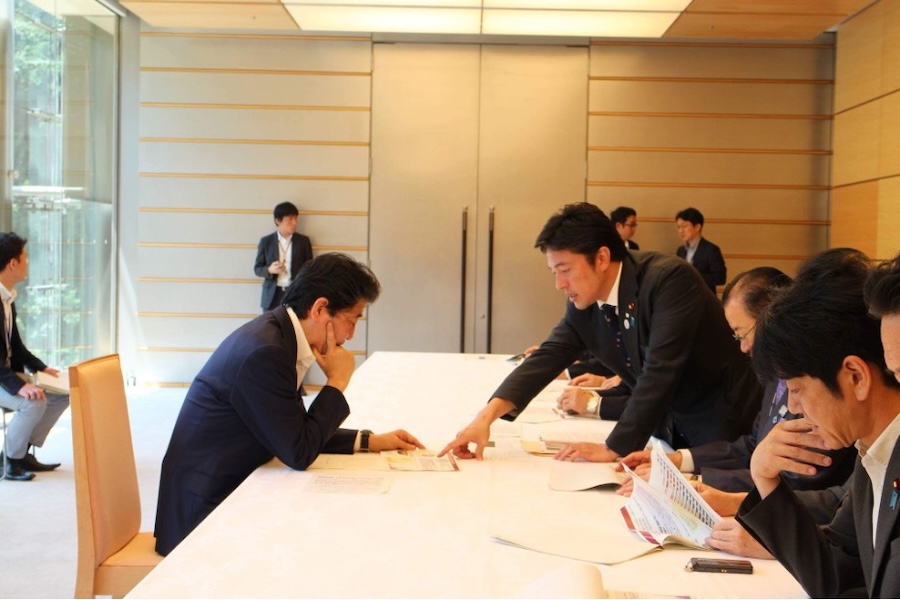
by Editor BGF | Nov 3, 2025 | Shinzo Abe Initiative for Peace and Security, News
On October 31st, Yasuhide Nakayama, a former member of the House of Representatives of the Liberal Democratic Party who has held important positions such as Vice Minister of Defense, updated his X (formerly Twitter) account, writing about Prime Minister Sanae Takaichi.”
He continued, “I have known Takaichi for many years, and she has always been straightforward, never sparing any effort, and doing her best for the country. I have never once seen her fawn or pander to anyone. As someone who knows her like that, it really hurts my heart when I see baseless criticism and malicious words. Sometimes people speak about people they don’t know based on their own imagination, but those words can also trample on someone’s sincere efforts.”
He added, “Prime Minister Takaichi is currently working hard overseas to protect Japan’s national interests. As a Japanese citizen, I am proud of her and deeply grateful.”
In response to this post, various comments have been received, such as, “The approval rating reflects the voice of the people, but it is unbearable to see slander based on the speculation of a few heartless people,” “Thank you for your comments criticizing the heartless slander against Prime Minister
Takaichi,” “People who criticize just want to complain about everything. They are not satisfied with themselves. And perhaps the main reason is jealousy,” and “Unfounded criticism and malicious words are really not good.”


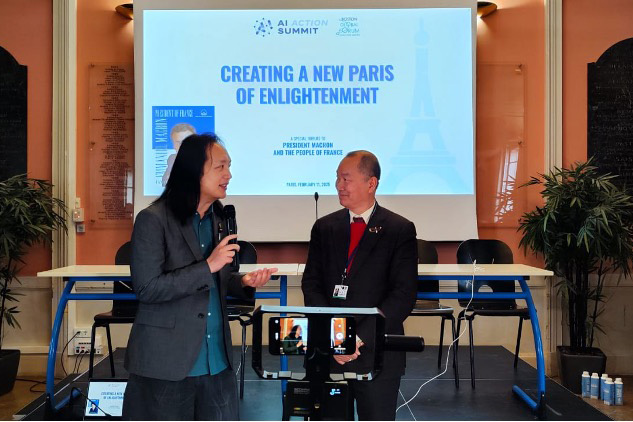
by Editor BGF | Nov 3, 2025 | Global Alliance for Digital Governance
Dear friends and leaders,
The AIWS Digital Asset Standards Initiative is a call to action — for all who believe that the digital revolution must serve peace, knowledge, and the human soul.
We invite governments, scholars, innovators, and global citizens to join the BGF–AIWS Family in bringing this framework to life — beginning with Vietnam, the United States, Japan, and Europe.
Let every digital asset we create become a light of trust and creativity, a contribution to a world of fairness, compassion, and innovation.
As Governor Michael Dukakis reminds us:
“Ethics and innovation are not separate paths. They are one.”
Together, through AIWS-DASI and AIWS Esteemed Digital Assets,
we affirm that technology must elevate humanity —
and that in this new civilization, moral intelligence is the highest form of AI.
Please contact us at [email protected]
BGF Conference at Harvard University Loeb House, November 4, 2025: Launching the AIWS Digital Asset Standards Initiative (AIWS-DASI)

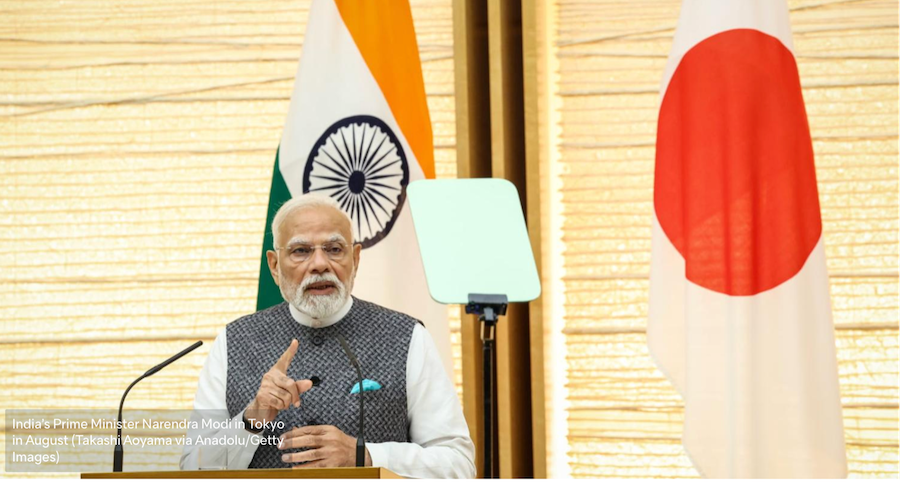
by Editor BGF | Oct 26, 2025 | Shinzo Abe Initiative for Peace and Security, News
October 27, 2025
Japan’s new Prime Minister Sanae Takaichi is steering Tokyo toward a more assertive and security-conscious regional posture, signaling a decisive shift in Japan’s role across the Indo-Pacific. Her leadership emphasizes technological sovereignty, defense modernization, and values-based diplomacy, themes that are rapidly redefining Japan’s strategic partnerships.
A Japanese government spokesperson affirmed that “India is a crucial partner in the Indo-Pacific,” adding that Prime Minister Takaichi is “deeply committed to strengthening Japan–India cooperation across security, economy, and digital innovation.”
While Takaichi’s strong stance on China and alignment with the United States highlight a more hawkish phase in Japanese foreign policy, New Delhi continues to navigate its nuanced position — balancing strategic autonomy with closer collaboration among democracies.
Despite this complexity, both nations share deep complementarities. Their partnership in AI, semiconductors, quantum technologies, and digital infrastructure represents a shared commitment to ensuring an open, ethical, and resilient Indo-Pacific.
For the Boston Global Forum (BGF)–AI World Society (AIWS) Family, the Japan–India relationship stands as a foundation of the New Economic Alliance Initiative — promoting cooperation among democratic nations to shape a secure, innovative, and human-centered AI future.
Prime Minister Takaichi, a 2023 World Leader in AIWS Award recipient, and India’s leaders both embody the AIWS vision: applying technology and intelligence with conscience to build peace, prosperity, and trust in the AI Age.
https://www.lowyinstitute.org/the-interpreter/japan-s-hawkish-turn-under-takaichi-tests-india-s-balancing-act
https://www.thehindu.com/news/international/india-is-a-crucial-partner-on-indo-pacific-pm-takaichi-committed-to-building-ties-japanese-spokesperson/article70197781.ece

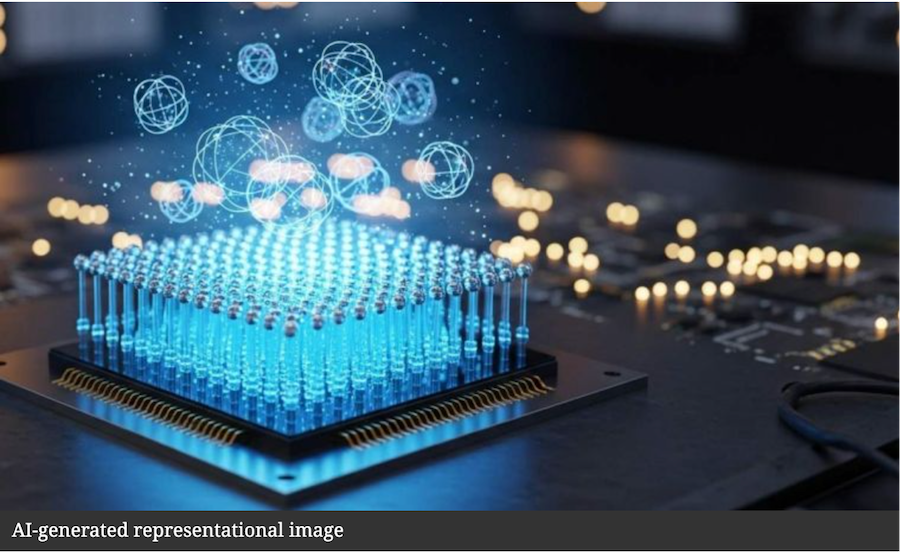
by Editor BGF | Oct 26, 2025 | News, Shaping Futures
October 27, 2025
Quantum computing has rapidly moved from theory to the center of global power politics. In the past month, world leaders including U.S. President Donald Trump, India’s Prime Minister Narendra Modi, and Japan’s incoming Prime Minister Sanae Takaichi have all highlighted quantum technology as a pillar of national strategy — marking a new phase in the global tech race.
According to The Week, governments and corporations are pouring resources into quantum breakthroughs that promise to revolutionize computing power, cryptography, and materials science. Google, IBM, and India’s Quantum Mission are among the front-runners advancing systems that could outperform classical supercomputers in solving complex real-world problems — from AI optimization to climate modeling and cybersecurity.
The U.S. is accelerating funding for quantum-secure infrastructure, aligning with President Trump’s “America’s Quantum Edge” initiative, while India is investing $6 billion in its National Quantum Mission, aiming to position itself as a global innovation hub by 2035.
The Boston Global Forum (BGF)–AI World Society (AIWS) Family recognizes this surge of quantum activity as a pivotal moment — one that requires ethical standards, responsible research governance, and cross-border collaboration to ensure quantum computing serves humanity rather than destabilizes it.
As BGF and AIWS advance their initiatives on AI-Government 24/7 and Digital Asset Standards, integrating quantum intelligence will be essential to achieving secure, transparent, and trustworthy global governance systems in the AI and quantum age.
https://www.theweek.in/news/sci-tech/2025/10/25/from-trump-to-modi-to-google-why-is-everyone-suddenly-getting-excited-about-quantum-computing.html


by Editor BGF | Oct 26, 2025 | News
October 26, 2025
In a pivotal moment for the Indo-Pacific region, U.S. President Donald Trump and Japan’s newly appointed Prime Minister Sanae Takaichi held their first official phone call on October 25, 2025. According to Japanese government sources, the conversation lasted approximately ten minutes and took place while Takaichi was in Kuala Lumpur for the ASEAN Secretariat summit and Trump was aboard Air Force One en route to the same event.TradingView+3Reuters+3The Japan Times+3
During the call, Prime Minister Takaichi declared that “strengthening the Japan-U.S. alliance is my administration’s top priority” and reaffirmed Japan’s role as an indispensable partner in the Indo-Pacific strategy.CNA+1 President Trump, in turn, congratulated Takaichi on her historic appointment as Japan’s first female prime minister and confirmed a shared commitment to “elevating the Alliance to new heights.”Reuters+1
Significance of the Call
- Alliance Continuity and Innovation: The quick alignment between the new Japanese leadership and the U.S. presidency signals continuity of the Japan–U.S. security partnership, but also introduces a renewing dynamic under Takaichi’s proactive and technology-focused agenda.
- Tech-Security Convergence: Takaichi’s administration has emphasized digital governance, AI coordination, and stronger defense cooperation. The call underscores how technological leadership and military strategy are becoming deeply intertwined in the bilateral agenda.
- Regional Impact: The timing — amid Japan’s changing security posture and rising Indo-Pacific tensions — sends a clear signal to regional actors that Tokyo and Washington plan to coordinate more closely. For allies like India and Australia, this renewal offers both opportunity and a recalibrated strategic weight.
- Alignment with BGF–AIWS Agenda: For the Boston Global Forum–AI World Society (BGF–AIWS) Family, the call embodies the intersection of ethical innovation, democratic alliance, and governance in the AI age — precisely the themes BGF promotes through initiatives such as “AIWS Government 24/7” and ethical digital assets.
https://www.nbcnews.com/world/asia/japan-says-plans-tell-trump-will-build-up-military-rcna239068

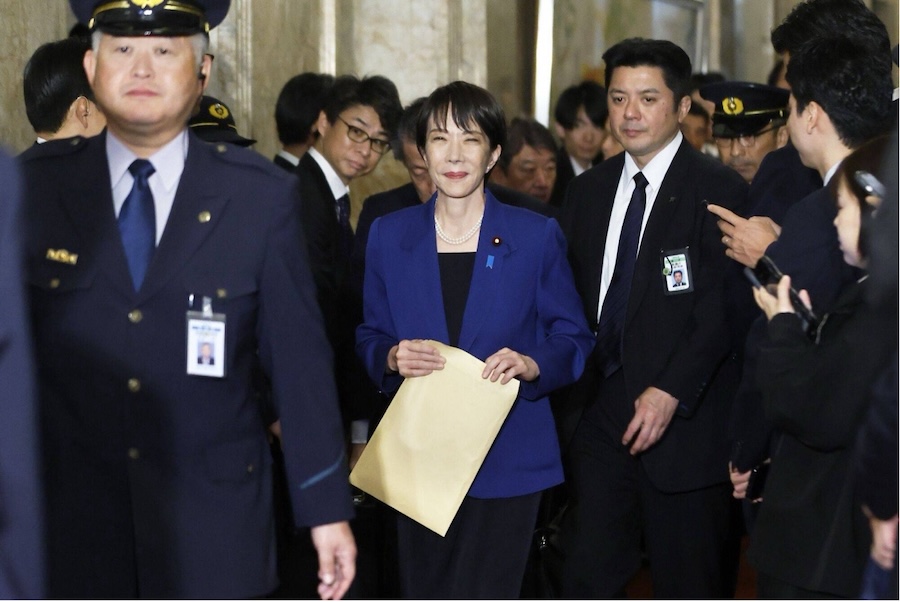
by Editor BGF | Oct 26, 2025 | Global Alliance for Digital Governance
October 26, 2025
Japan’s newly appointed Prime Minister Sanae Takaichi made her diplomatic debut this week at the ASEAN Summit in Kuala Lumpur, marking her first major step onto the international stage since taking office earlier this month.
Her agenda underscores Japan’s renewed strategic drive: strengthening the Free and Open Indo-Pacific (FOIP) vision, deepening engagement with Southeast Asian partners, and preparing for an anticipated meeting with U.S. President Donald Trump later this month.
A Strategic Debut for Japan’s New Leader
At the ASEAN Summit, Prime Minister Takaichi outlined Japan’s priorities in maintaining regional stability, advancing digital cooperation, and promoting rule-based international order. Her debut highlighted Japan’s determination to take a leading role in navigating the geopolitical and technological challenges of the Indo-Pacific region.
Following the summit, Takaichi is expected to meet with President Trump — her first bilateral summit as Japan’s leader — to reaffirm the centrality of the U.S.–Japan alliance to global security and technological leadership. In their recent phone call, she told Trump that the alliance remains her government’s “top foreign-policy priority,” a sentiment Trump reciprocated, calling for “stronger coordination in peace, trade, and AI-driven innovation.”
Alliance, Innovation, and the AI Age
Takaichi’s leadership symbolizes a pivotal moment for Japan’s democracy: combining technological transformation, ethical governance, and strategic autonomy. Her rise also carries significance for the Boston Global Forum (BGF), which honored her in 2023 with the World Leader in AIWS Award for her commitment to building a human-centered, secure, and ethical digital society.
As Takaichi now turns her vision toward diplomacy, her ability to integrate AI governance and ethical technology into Japan’s foreign policy will define her international influence.
A Message of Continuity and Renewal
For Japan, this ASEAN appearance and forthcoming Washington meeting signal both continuity and renewal — continuity in the U.S.–Japan alliance, and renewal in the nation’s leadership in digital transformation and AI policy.
For the Boston Global Forum and AI World Society (AIWS) family, Takaichi’s debut offers hope that Japan will play a pioneering role in AIWS Government 24/7, ethical digital assets, and AI governance for peace and humanity — advancing a future where innovation and moral leadership walk hand in hand.
https://www.japantimes.co.jp/news/2025/10/25/japan/politics/takaichi-diplomatic-debut-asean-trump/


by Editor BGF | Oct 21, 2025 | News
October 21, 2025
Her Excellency Sanae Takaichi
Prime Minister of Japan
Tokyo, Japan
Your Excellency,
On behalf of the Boston Global Forum (BGF) and the AI World Society (AIWS), we extend our warmest congratulations to you on your historic appointment as the first female Prime Minister of Japan. Your leadership marks a defining milestone for Japan and for women leaders across the world — a symbol of vision, integrity, and strength in the Age of Artificial Intelligence.
In 2023, BGF had the honor of recognizing you with the World Leader in AIWS Award, in acknowledgment of your outstanding contributions to building a human-centered, secure, and ethical digital society. That recognition has become even more meaningful as you now lead Japan into a new era of innovation and global leadership.
We deeply appreciate your insightful and visionary statement — “AIWS Government 24/7: How AI Might Best Transform Governance” — delivered at the AI Action Summit in Paris, February 2025. Your words resonated profoundly with global leaders and thinkers, articulating the essential connection between AI, security, and human-centered governance. You captured a truth that guides all our efforts: digital transformation has meaning only when it safeguards humanity and strengthens trust.
Prime Minister, your vision aligns perfectly with the mission of the AI World Society, founded by the Boston Global Forum to shape an age in which technology and governance advance peace, ethics, and human dignity. Inspired by your leadership, we continue to advance the AIWS Government 24/7 Initiative, a practical model for continuous, transparent, and ethical governance powered by responsible AI.
The Boston Global Forum and AIWS stand ready to support and contribute to your leadership — particularly in realizing AIWS Government 24/7 and making Japan a pioneer nation in applying AI and advanced technologies to enhance governance, elevate quality of life, and strengthen Japan’s role as a model of excellence in the AI Age.
We look forward to continued collaboration with your government, guided by shared values of peace, security, and humanity.
Please accept our heartfelt congratulations once again, along with our deepest respect and admiration for your historic achievement. We wish you great success in leading Japan toward an era of enlightened, AI-powered progress.
With warm regards and highest respect,
Governor Michael S. Dukakis
Co-Founder and Chair
Boston Global Forum
Nguyen Anh Tuan
Co-Chair and Chief Executive Officer
Boston Global Forum











